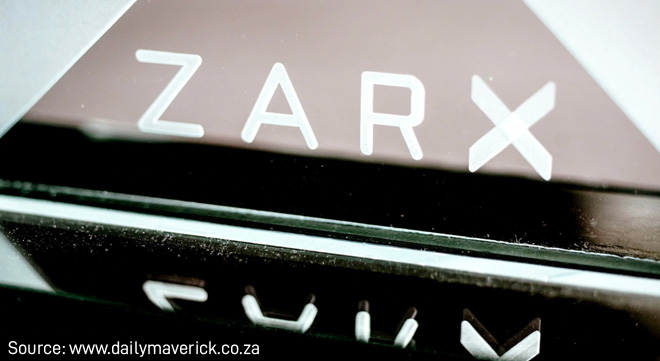The FSCA announced on 13 February that it has cancelled the exchange licence of alternative trading platform ZAR X.
It said ZAR X’s licence has been pulled because of “prolonged non-compliance” with section 8(1)(a) of the Financial Markets Act (FMA), read with regulations 8 and 43(2) of the FMA Regulations, which govern the liquidity and capital adequacy requirements of an exchange.
Licensed exchanges are required to have capital on their balance sheet that is equivalent to at least six months of their operating expenses, to help them withstand unexpected future events.
The FSCA said the decision had been made after consultation with the Prudential Authority (PA) and the South African Reserve Bank.
“The cancellation decision was not taken lightly. However, the decision follows a prolonged remedial process which was initiated to assist ZAR X to become compliant to the regulatory framework. The remedial process failed to yield positive results,” FSCA Commissioner Unathi Kamlana said.
“Four licensed securities exchanges remain operational within the South African financial markets.”
ZAR X, which began operating in 2017, pioneered the use of real-time settlement in South Africa.
The FSCA has instructed ZAR X to:
- Immediately inform all affected persons of the immediate cancellation of its licence and provide proof of having complied with this condition within five business days from the date of receipt of the cancellation letter.
- Cease all business of an exchange. No further trading of securities listed on the exchange is permitted and no new listings may be admitted.
- Take necessary steps, in consultation with all stakeholders to facilitate the delisting of all listed securities on the exchange, where applicable. The processes to delist the securities must be finalised within 14 days.
- Provide weekly progress reports with respect to the above matters to the satisfaction of the FSCA.
ZAR X’s response to the decision
In a statement following the FSCA’s decision, ZAR X said it was considering “the way forward”.
“Any decision taken by the board will be in the best interests of all of ZAR X stakeholders. All affected parties will be kept updated of the decision and any processes that need to be undertaken as a result thereof.”
ZAR X reiterated its position that it did not believe its lack of capital on hand posed a systemic risk.
“Operationally, ZAR X facilitated the trading and real-time settlement of transactions conducted through the exchange without a single failure. A unique feature of ZAR X’s exchange model is that investor assets are never at risk, as investors hold their assets directly in their own name. The model therefore poses very little risk to investors and the market.”
ZAR X described the FSCA’s decision to cancel its exchange licence as “a significant set-back to advancing financial inclusion and to addressing the significant structural short-comings present in South African capital markets”.
“The JSE exchange model has dominated for over century. Until ZAR X, the market had only known and been exposed to the JSE exchange model and tends to reference any other initiative against that model. The entrenchment of the JSE model through regulation has made it very difficult for new market participants to accommodate an exchange model different to the JSE.”
Licence suspended in 2021
The FSCA suspended ZAR X’s licence in August 2021, also for non-compliance with the FMA’s liquidity and capital adequacy requirements.
At the time of the suspension, seven securities were listed on the exchange with a combined market capitalisation of R5 billion. The securities included agribusiness Senwes, Orion Real Estate, and Transformational Investment Portfolio, an investor of broad-based black economic empowerment share schemes.
The FSCA said the suspension would remain effective until the earlier of either of the following occurred:
- ZAR X rectified its non-compliance with the capital adequacy requirements to the satisfaction of the FSCA and the PA, in which case the suspension may be lifted; or
- The Authority made a final decision on the cancellation of ZAR X’s exchange licence.
The FSCA said it intended to proceed, three months after the date of suspension, with the cancellation of ZAR X’s licence if it failed to rectify its non-compliance with the capital adequacy requirements.
Business Day reports that the suspension resulted in “a public spat” between the exchange’s co-founder and chief executive, Etienne Nel, and the Public Investment Corporation (PIC), which holds a 24.14% stake in the exchange.
In a statement in which Nel vowed to challenge the suspension, he implied that ZAR X would not have run into liquidity issues if the PIC had approved an equity investment by a foreign investor in December 2020.
However, the PIC, which invests on behalf of the Government Employees Pension Fund, called Nel’s suggestion an “unfortunate misrepresentation”, according to Business Day.



